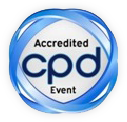
Giridharan Periyasamy
Genome Institute of Singapore, Singapore
Title: "Patient Derived Micro Tumor systems: Future Trends Towards Improved Testing Systems - Realizing the Potential of HTS/HCS towards precision medicine..."
Biography
Biography: Giridharan Periyasamy
Abstract
With increasing breadth and depth of genomics studies across a range of cancers, it is now apparent that there exists significant inter and intra tumoural heterogeneity, with complex genotypes comprising of multiple co-existing genetic and epigenetic alterations. Current efforts at genomic characterization of individual cancers however, has several limitations: A significant proportion of patients invariably develop resistance to current targeted therapies, for which the mechanisms are not fully unraveled, and there remain a lack of treatment options. In this project, we plan to propagate patient derived cell lines in order to allow functional studies that may expand therapeutic opportunities beyond genomic-based markers. Functional studies comprise both chemical and genetic tools that perturb the signaling networks in the primary cell cultures, in order to unravel complex signaling networks that interact through crosstalk and feedback loops, which modify therapeutic vulnerability. Such screens can therefore provide insights into mediators of resistance and sensitivities, yielding predictive biomarkers as well as novel drug combinations to circumvent drug resistance. Two crucial components include an efficient scalable system to explore therapeutic combinations and the development of representative preclinical models: Patient-derived cells in 3D culture models reflect an integration of genetic, epigenetic, and environmental influences, and may closely mimic the chemotherapeutic (or pathway specific inhibitor)-response of the actual tumor in patients. Thus we aim to exploit the relevance and scalability of patient-derived cell lines to perform HTS/HCS based screens.

